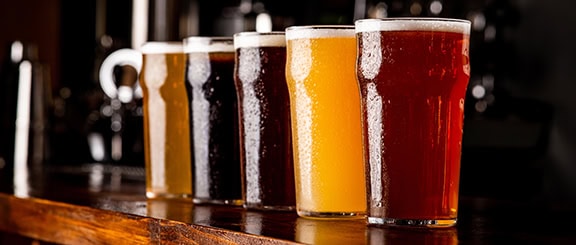Sustainable Wastewater Management for Breweries
Brewing beer is a water-intensive process. Water is not only the primary ingredient in beer but also essential for cleaning, rinsing, and maintaining brewing equipment. On average, breweries use about seven barrels of water for every barrel of beer produced. Even the most water-efficient operations still require around three barrels of water per barrel of beer.
As sustainability becomes a top priority in every industry, wastewater management is a crucial consideration. Proper wastewater treatment ensures compliance with environmental regulations, reduces costs, and minimizes the ecological impact of brewery operations.
Addressing Brewery Wastewater Challenges
Breweries generate wastewater rich in organic materials such as sugars, yeast, and proteins. While these elements are not inherently toxic, they contribute to high biochemical oxygen demand (BOD) levels, which can overwhelm municipal water treatment facilities and disrupt natural ecosystems. Excess nutrients can lead to algae overgrowth in local waterways, negatively affecting aquatic life and water quality.
Many breweries face the decision of whether to treat wastewater on-site or rely on municipal treatment systems. Some municipalities may not have the capacity to handle brewery wastewater, leading breweries to explore alternative solutions.
Brewery Wastewater Treatment Solutions
Breweries have several options for managing wastewater effectively:
- Municipal Treatment Partnerships – Some breweries send their wastewater to municipal treatment facilities. However, in cases where local plants lack the capacity to handle high-strength wastewater, breweries must seek alternative treatment methods.
- On-Site Wastewater Treatment Systems – Investing in an on-site treatment facility allows breweries to manage their wastewater independently. Many breweries use anaerobic digesters, filtration systems, or other advanced treatment technologies to reduce environmental impact and operating costs.
- Resource Recovery – Some breweries partner with wastewater treatment companies that convert wastewater into reusable resources, such as clean water and energy. By treating and repurposing wastewater, breweries can reduce overall water consumption.
The Role of Heat Exchangers in Wastewater Treatment
Efficient wastewater treatment often involves temperature regulation. Heat exchangers play a crucial role in stabilizing wastewater temperatures, improving treatment efficiency, and recovering heat for reuse in brewing processes. Shell and tube heat exchangers, for example, help breweries maintain optimal temperatures while reducing energy consumption.
Minimizing Environmental Impact
Sustainable wastewater management is vital for breweries looking to minimize their environmental impact and improve operational efficiency. Whether through municipal partnerships, on-site treatment systems, or resource recovery, breweries have multiple options for responsible wastewater management.
For breweries considering wastewater treatment upgrades, the right equipment is essential. Enerquip’s engineers have extensive experience providing heat exchangers for food and beverage manufacturers. Contact our team to learn how our solutions can support your brewery’s sustainability goals.
From the Enerquip Blog
How Annular Distributors Improve Efficiency in Shell and Tube Heat Exchangers
Choosing a Heat Exchanger For Your Brewing Process
The Best Types of Shell and Tube Heat Exchangers
Standards for Sanitary & High-Purity Processing Equipment
Shell and tube heat exchangers are used to cool wort in craft brewing


